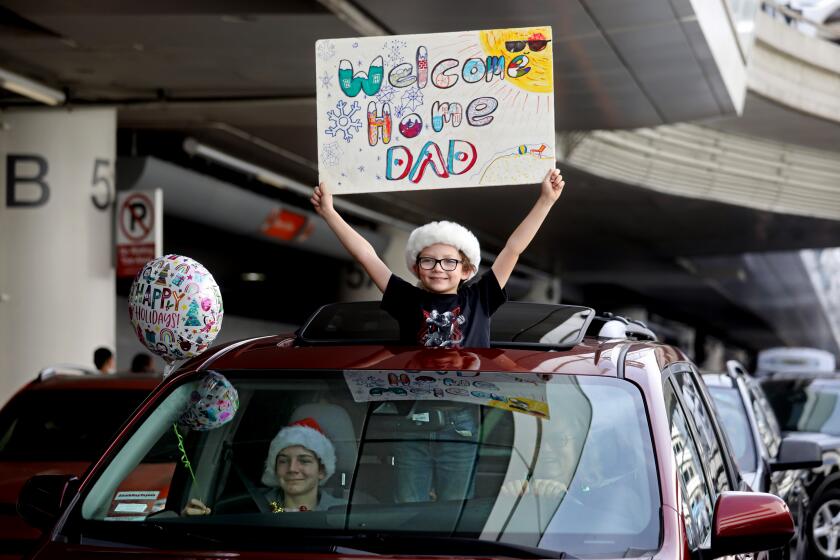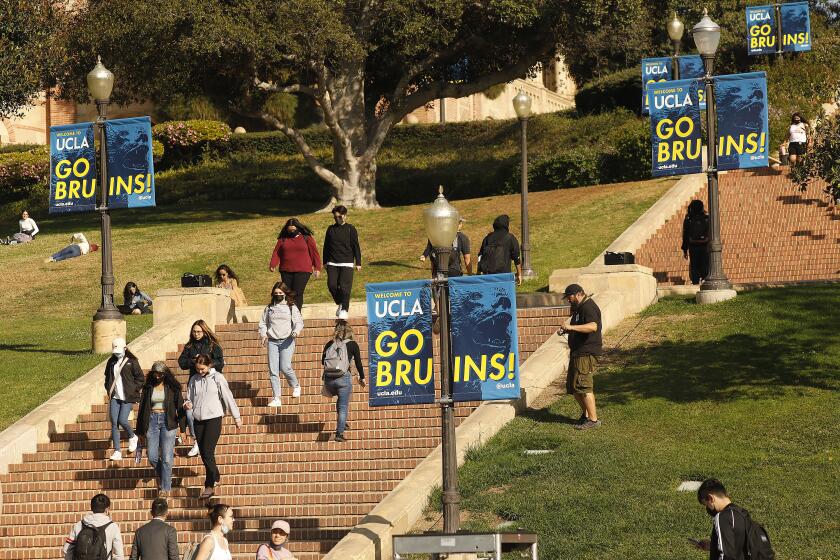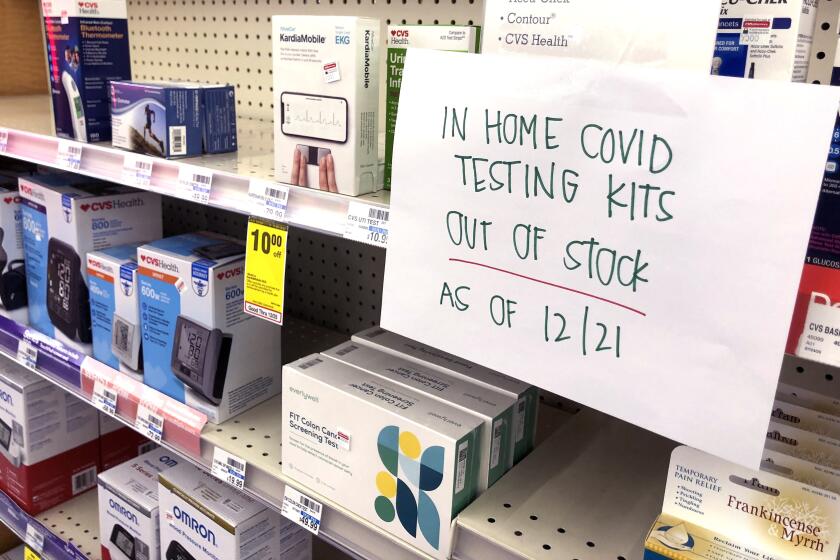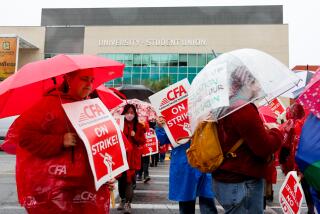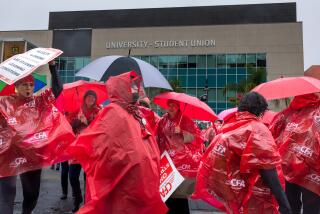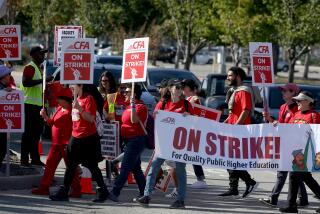Cal State mandates student COVID-19 booster shots as Omicron threat intensifies
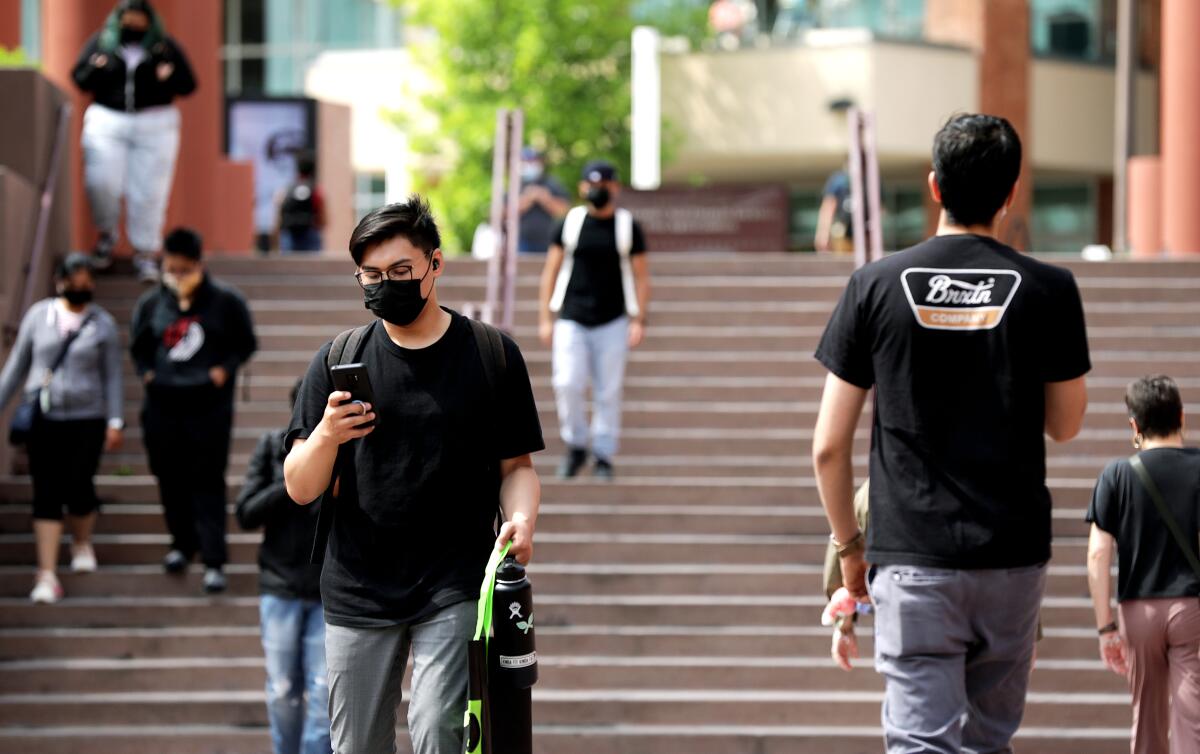
California State University announced Wednesday that it is mandating COVID-19 vaccine booster shots for all students at its 23 campuses and is negotiating a requirement for faculty and staff.
Chancellor Joseph I. Castro told The Times that he and Cal State presidents met Tuesday to discuss the idea of a booster requirement and unanimously agreed that it was the right move amid the spread of the Omicron coronavirus variant.
The mandate is pending for faculty and staff, as talks will get underway in early 2022 with their unions, which represent more than 29,000 employees.
“This was an important thing for our campuses so we could protect students, staff and faculty during this very challenging period of time,” Castro said.
Up to 3.5 million people are expected to travel through LAX from Dec. 16-Jan. 3, airport officials said, making it the busiest travel period this year.
The mandate, which allows for medical and religious exemptions, requires the boosters by Feb. 28, 2022, or six months after the final dose of vaccination. It’s possible that some campuses could impose a stricter mandate, as was the case when Cal State first announced its vaccination mandate. San Diego State, for example, has already announced a booster mandate.
The announcement comes one day after the University of California told chancellors to develop a plan for safety in the upcoming semester. Seven UC campuses have delayed the start of in-person classes, while others continue to confer. A UC booster mandate has technically been on the books since July, but a letter from Chancellor Michael Drake on Tuesday explicitly stated that boosters are required.
COVID booster shots will be required for UC students and staff, and chancellors are preparing for a possible return to remote-only classes after break.
Ahead of the talks with Cal State leaders, California Faculty Assn. President Charles Toombs said that he supported safety measures to protect the Cal State community.
“Throughout this pandemic, CFA has always privileged the health and safety of our members — and we want that for all our employees and students,” he said, especially given the unpredictability of the virus. “Just when you think you’re seeing the light at the end of the tunnel, you have Omicron.”
Cal State Student Assn. President Isaac Alfero supported the booster mandate, especially as the threat of the Omicron variant looms.
“I will be working with the chancellor and CSU leaders to ensure that the rollout of this mandate is best oriented toward student success in keeping our campuses safe,” the Cal State Fullerton senior said. Alfero, 21, had previously been in talks with student leaders at various campuses about encouraging students to get their booster shots.
Castro noted that most Cal State campuses are on a semester system — rather than a quarterly system, like most UC campuses — and have more time before classes begin after winter break. There are no current plans to delay the start of in-person classes in late January.
“All our campuses continue to plan to offer in-person instruction. However, we agreed to monitor the situation and pivot if necessary,” he said, adding: “Each university president has the authority to make that change based on local conditions.”
College representatives throughout the state said in early December that they would continue to monitor data around the Omicron and Delta variants. While most at the time did not intend to make changes for the upcoming semester, they were ready to change course if necessary.
While the Omicron variant is highly transmissible, early indicators suggest it may be less severe than the Delta variant. Now the dominant coronavirus strain in the U.S., Omicron accounted for 73% of new infections last week — and is expected to cause more breakthrough infections among vaccinated people, underscoring the importance of boosters and testing.
A surge of coronavirus cases tied to the Omicron variant ahead of Christmas weekend has prompted a crush of demand for over-the-counter antigen tests.
Health experts have been concerned that the departure of students from campus over winter break puts them at new risk of contracting the virus outside of their university bubbles, then bringing it back to the community in the new semester.
The situation may give some déjà vu; last year, a surge in coronavirus cases and hospitalizations hit before the winter holidays. But the hope this time is that access to vaccinations and boosters will prevent a surge that will overwhelm hospitals.
Recent data from the California Department of Public Health showed that unvaccinated individuals in the state were 7.1 times more likely to get COVID-19 and 12.8 times more likely to be hospitalized than those who are vaccinated.
“There’s still a lot that we don’t understand about Omicron. However, based on what I’m hearing from experts, vaccination is the best tool we have to protect ourselves — that’s why we’re requiring everyone to get their booster shots,” Castro said.
More to Read
Sign up for Essential California
The most important California stories and recommendations in your inbox every morning.
You may occasionally receive promotional content from the Los Angeles Times.
